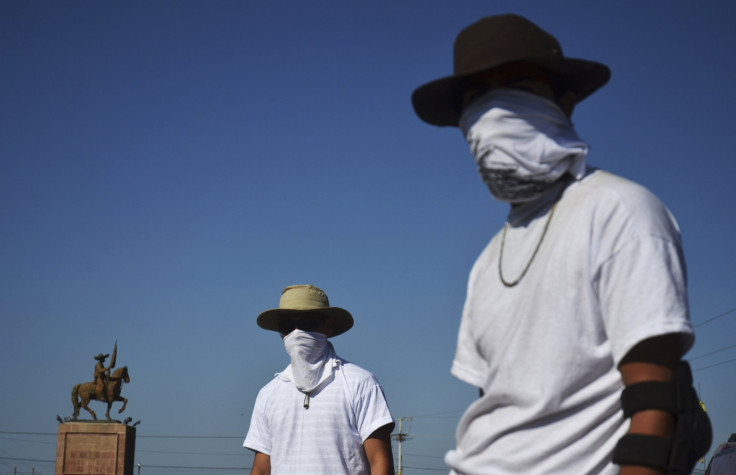
In February 2013, the first autodefensas, or citizen militias, began to take up arms in the Mexican state of Michoacán and other parts of the Tierra Caliente, spurred to action by the impunity and brutality exercised by the Knights Templar drug cartel in the region. And from the very beginning, many of the top players in the militias’ organization and leadership had spent significant periods of time in the United States, even spending their formative years there, in some cases.
The Washington Post noted earlier this month that Dr. José Mireles, one of thirty-some leaders on the militias’ General Counsel and perhaps its most visible face, lived for several years in Sacramento before returning to Michoacán in 2007. During its conception, Mireles was aided by 34-year-old Luis Antonio Torres Gonzalez, or “El Americano”, who was born in the US and formerly worked as a car salesman in El Paso. Gonzalez began plotting with “El Doctor”, as Mireles is known, after he was kidnapped while on a family vacation in Michoacán and his relatives extorted for $150,000 in ransom.
Others, the Global Post reports, didn’t return to their native soil voluntarily. Mixed in among those who’ve returned are former gang members. Some were deported for more minor offenses, or were forced to return after having lost their jobs in the United States.
The state is one traditionally associated with migration to the US, especially to California. According to the Migration Policy Institute, 16.6 percent of all migrants to the US from Mexico hailed from Michoacán in most of the 20th century, along with four other states in the Tierra Caliente. In recent times, that trend has changed – southern states like Chiapas (14.2 percent in 2008) and Oaxaca (7.2) began to send more northward, with Michoacán sending 62,108 people, or 6.5 percent of all Mexicans, in 2008.
© 2024 Latin Times. All rights reserved. Do not reproduce without permission.